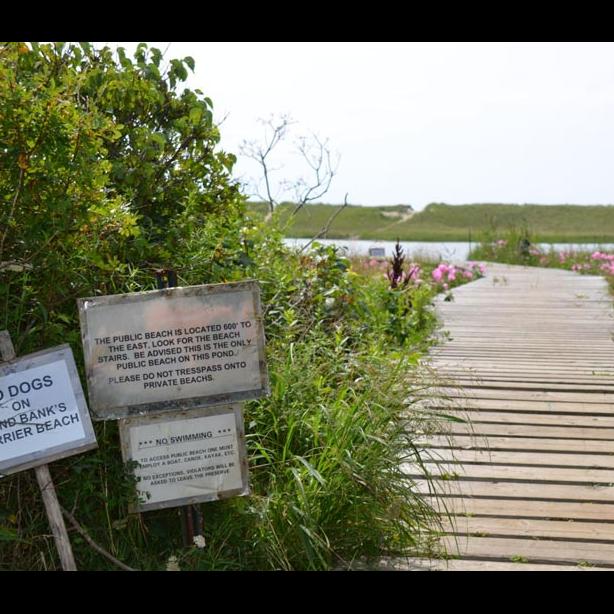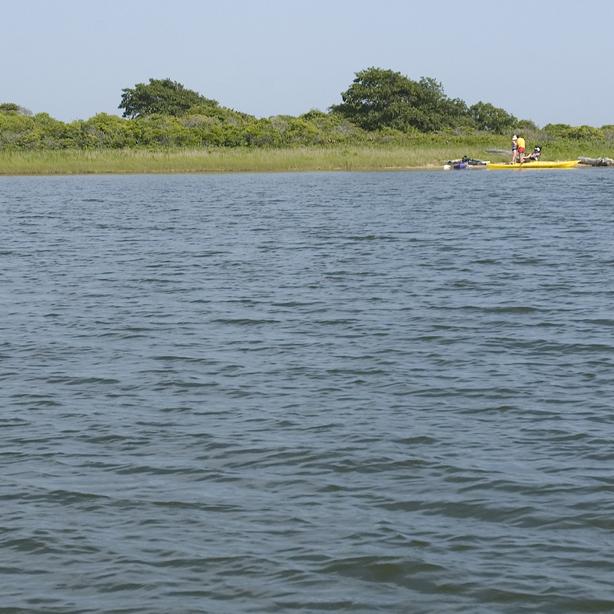Coastal ponds
Coastal ponds
August 27, 2015
Hard Science, Hard Truths About Pond Pollution
All the saltwater ponds on the Vineyard are impaired to some degree, and each one faces a unique set of conditions. Public interest has reached a tipping point.
August 14, 2015
Sengekontacket Pond Closed to Shellfishing After Rainfall
Sengekontacket Pond has been closed to shellfishing because of rainfall received earlier this week.
The town of Oak Bluffs has advised that the pond will be closed until at least Monday, August 17.
The state mandates pond closures after heavy rainfall because of run-off from waterfowl and other sources. Red flags fly at both bridges on the pond when it is closed to shellfishing.
August 13, 2015
Once a Duck Hunting Club, Still a Paradise Thanks to Generosity
The draw began with duck hunting in the early 1900s. Tisbury Great Pond was a haven for waterfowl, and wealthy Boston gentlemen took notice.
August 13, 2015
For Islanders, Ties to Coastal Ponds Run Deep
While the Vineyard is perhaps best known for the ocean, Vineyarders have deep ties to the ponds that were carved into the Island landscape some 20,000 years ago.
August 6, 2015
Coastal Ponds Under Pressure: Balancing People and the Environment
Island ponds are a connection to cultural heritage and a livelihood for fishermen. But housing booms and land-use changes threaten to undo a delicate balance.
February 26, 2015
For Bellwether of Climate Change, Tough Decisions Ahead
Martha’s Vineyard is a bellwether of climate change, sea level rise and socioeconomic dynamics. It also is a place with both the interest in and commitment to dealing with its effects.
November 24, 2014
Protect Coastal Ponds, Protect Property Values, Cape Commission Advises Vineyard
On Cape Cod ambitious efforts are underway to remediate ponds and estuaries. And when coastal ponds decline, so do property values, the executive director of the Cape Cod Commission, told a meeting at the Katharine Cornell Theatre.
August 23, 2012
Decline in Water Quality Puts Island Ponds In Jeopardy
A pair of quahauggers stood waist-deep in Sengekontacket Pond early Thursday morning, the late August sun glinting off the calm water as they raked hardshell clams, perhaps a basketful for their dinner. The pond has been open to summer shellfishing this year for the first time since 2007.
January 5, 2012
Estuaries Study: Worth Its Weight
Cribbing a famous line from an infamous late U.S. president, it is public enemy number one in Southeastern Massachusetts, although this time the enemy is not drugs but nitrogen. Nitrogen poses a serious threat to the health of our coastal ponds and saltwater embayments that were once pristine and are now in alarming states of decline. Eelgrass beds are gone or disappearing, and along with them the clean shellfish that both provide a rich source of food and form a key cog in the local economy.
July 22, 2010
Sewers and Oysters Said to Be Saviors For Ponds in Peril
Last summer the Vineyard Conservation Society succeeded in convincing Islanders that their ponds were indeed in peril. At this year’s Ponds in Peril forum, Islanders learned what they could do about it.











